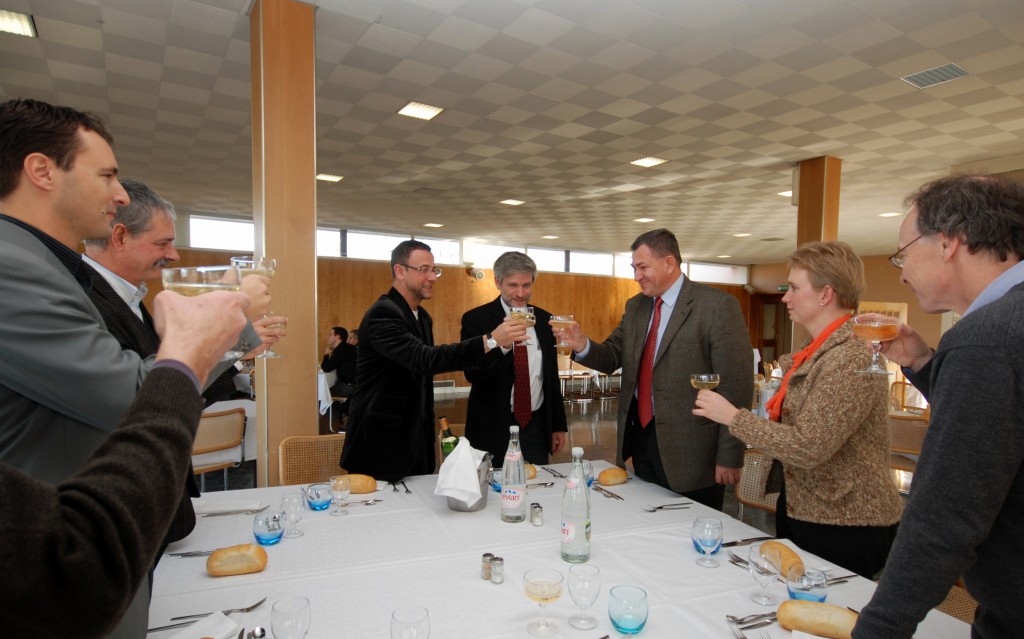ITER NEWSLINE
61
A toast to Mister Superconductor
Sabina Griffith
A toast to Mister Superconductor

Not part of the Procurement Arrangement, but excellent results are always worth a toast: the ITER Magnet Division and colleagues raise their glasses to Alexander Shikov, Vice-Director of the Bochwar Institute in Moscow.
The Bochwar Institute is building on more than 40 years of experience on manufacturing superconductors made of niobium-titanium and niobium-tin. The first-in-the-world superconductiing magnet systems of the T-7 and T-15 tokamaks were fabricated out of these developed superconducting strands.
The production of the conductors for ITER's magnets is the biggest-ever procurement for the Bochwar Institute—some 120 tonnes of niobium-titanium (NbTi) for the poloidal field conductors and 100 tonnes of niobium-tin (Nb3Sn) for the toroidal field conductors to be produced at the Chepetsky Mechanical Plant. This totals to about one-fifth of the total amount needed for the construction of the ITER magnet system.
The latest testing of NbTi and Nb3Sn conductors have confirmed their highest quality and the soundness of the ITER toroidal and poloidal field conductor designs.
return to Newsline #61


